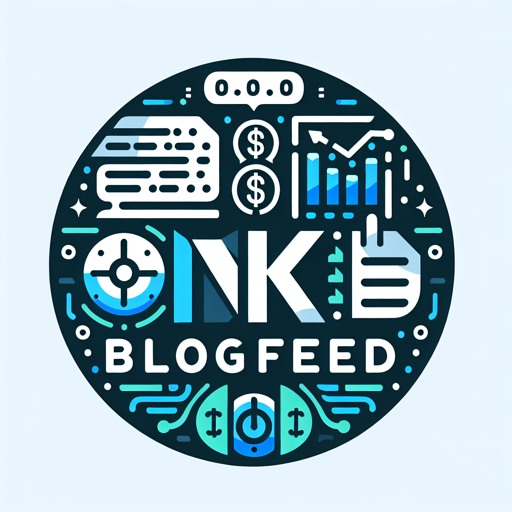Procrastination is a common challenge that affects individuals across various walks of life, often leading to stress and diminished productivity. To combat this tendency, it is essential to adopt effective strategies that can help individuals regain control over their time and tasks. One of the most effective methods is breaking tasks into smaller, manageable parts.
This approach not only makes daunting projects feel less overwhelming but also provides a sense of accomplishment as each segment is completed. For instance, a student facing a large research paper can divide the work into stages such as topic selection, research, outlining, writing, and editing. By focusing on one small task at a time, the student can maintain momentum and motivation.
Another powerful strategy is setting specific deadlines for each task. When individuals impose deadlines on themselves, they create a sense of urgency that can drive action. This technique can be particularly effective when combined with accountability measures, such as sharing goals with a friend or colleague.
For example, if someone commits to finishing a report by Friday and informs their manager about this goal, the added pressure of accountability can serve as a strong motivator to complete the work on time. By implementing these strategies, individuals can significantly reduce procrastination and enhance their overall productivity.
Key Takeaways
- Set specific and achievable goals to overcome procrastination and boost productivity.
- Break tasks into smaller, manageable steps to make them less overwhelming and more achievable.
- Use positive affirmations and visualization techniques to stay motivated and focused on the end goal.
- Create a supportive and organized work environment to minimize distractions and maximize productivity.
- Reward yourself for completing tasks and staying on track to reinforce positive behavior and motivation.
Harnessing the Power of Positive Thinking to Overcome Procrastination
Positive thinking plays a crucial role in overcoming procrastination and fostering a productive mindset. When individuals cultivate an optimistic outlook, they are more likely to approach tasks with enthusiasm rather than dread. This shift in perspective can be achieved through various techniques, such as visualization and affirmations.
For instance, visualizing the successful completion of a project can create a mental image that inspires action. A person might imagine themselves receiving praise for their work or feeling a sense of relief once the task is done. Such positive imagery can motivate individuals to take the first step toward completing their tasks.
Affirmations are another effective tool for promoting positive thinking. By repeating encouraging statements such as “I am capable of completing this task” or “I will take action today,” individuals can rewire their thought patterns to support productivity. This practice not only boosts self-confidence but also helps to diminish the fear of failure that often accompanies procrastination.
When individuals believe in their ability to succeed, they are more likely to take proactive steps toward their goals, ultimately transforming their approach to work and life.
Motivational Techniques to Kickstart Productivity and Banish Procrastination
To effectively banish procrastination, it is essential to employ motivational techniques that can kickstart productivity. One such technique is the Pomodoro Technique, which involves working in short bursts followed by brief breaks. This method encourages sustained focus while preventing burnout.
For example, an individual might set a timer for 25 minutes to work on a task, followed by a 5-minute break to recharge. This structured approach not only enhances concentration but also creates a rhythm that can make work feel more manageable and enjoyable. Another motivational technique is the use of rewards.
By establishing a system of incentives for completing tasks, individuals can create positive reinforcement that encourages productivity. For instance, someone might decide to treat themselves to a favorite snack or an episode of a beloved show after finishing a challenging assignment. This association between completing work and receiving a reward can help shift the focus from the discomfort of the task to the pleasure of the reward, making it easier to overcome procrastination.
For more tips on productivity and motivation, visit Great Day.
From Procrastination to Productivity: 5 Strategies for Positive Results
Transitioning from procrastination to productivity requires a strategic approach that emphasizes positive results. One effective strategy is prioritization, which involves identifying the most critical tasks and focusing on them first. By tackling high-priority items, individuals can experience immediate progress and build momentum for subsequent tasks.
For example, a project manager might prioritize urgent client requests over less pressing internal reports, ensuring that they address the most impactful work first. Additionally, creating an organized workspace can significantly enhance productivity. A clutter-free environment minimizes distractions and fosters a sense of calm that is conducive to focus.
Individuals should take time to declutter their desks and digital spaces, ensuring that only essential items are within reach. This organization not only streamlines workflow but also instills a sense of control that can combat feelings of overwhelm associated with procrastination.
Implementing Positive Thinking Techniques to Overcome Procrastination and Get Things Done

Implementing positive thinking techniques is vital for overcoming procrastination and achieving goals effectively. One practical method is maintaining a gratitude journal, where individuals regularly write down things they are thankful for or accomplishments they have achieved. This practice shifts focus from negative thoughts and self-doubt to appreciation and positivity, fostering an environment where productivity can thrive.
For instance, reflecting on past successes can remind individuals of their capabilities and motivate them to tackle current challenges. Another technique involves surrounding oneself with positive influences. Engaging with supportive friends or colleagues who encourage productivity can create an uplifting atmosphere that diminishes procrastination tendencies.
Participating in group activities or study sessions can provide both motivation and accountability, as individuals share their goals and progress with one another. This collaborative approach not only enhances productivity but also reinforces the belief that success is attainable through collective effort.
Procrastination No More: 5 Motivational Strategies to Boost Productivity
To effectively combat procrastination, it is essential to adopt motivational strategies that resonate with individual preferences and lifestyles. One such strategy is time blocking, which involves scheduling specific periods for focused work on particular tasks throughout the day. By allocating dedicated time slots for each activity, individuals can create structure in their day and minimize distractions.
For example, someone might block out two hours in the morning for deep work on a project before attending meetings or responding to emails. Another impactful strategy is embracing imperfection. Many individuals procrastinate due to fear of producing subpar work; however, accepting that perfection is unattainable can alleviate this pressure.
By focusing on progress rather than perfection, individuals can take action without being paralyzed by self-doubt. For instance, an artist might allow themselves to create rough sketches without worrying about finalizing every detail, ultimately fostering creativity and reducing procrastination.
Transforming Procrastination into Productivity: Positive Thinking Techniques for Success
Transforming procrastination into productivity requires a commitment to positive thinking techniques that promote success. One effective approach is mindfulness meditation, which encourages individuals to become aware of their thoughts and feelings without judgment. By practicing mindfulness regularly, individuals can develop greater self-awareness regarding their procrastination triggers and learn to respond more constructively.
For example, someone who tends to procrastinate when feeling overwhelmed may recognize this pattern during meditation and consciously choose to break tasks into smaller steps instead. Additionally, setting realistic goals is crucial for maintaining motivation and preventing procrastination. When individuals establish achievable objectives, they are more likely to experience success and build confidence in their abilities.
For instance, rather than aiming to complete an entire project in one sitting, breaking it down into daily or weekly milestones allows for steady progress while minimizing feelings of overwhelm. This incremental approach not only fosters productivity but also reinforces a positive mindset that encourages continued effort toward achieving larger goals. In conclusion, overcoming procrastination requires a multifaceted approach that incorporates effective strategies and positive thinking techniques.
By breaking tasks into manageable parts, setting deadlines, utilizing motivational techniques like the Pomodoro Technique and rewards, prioritizing tasks, maintaining an organized workspace, practicing gratitude and mindfulness, and embracing imperfection, individuals can transform their relationship with productivity. Ultimately, these strategies empower individuals to take control of their time and achieve their goals with confidence and clarity.
FAQs
What is procrastination?
Procrastination is the act of delaying or postponing tasks or activities, often to the point of experiencing negative consequences.
Why do people procrastinate?
People procrastinate for various reasons, including fear of failure, lack of motivation, perfectionism, feeling overwhelmed, or simply not knowing where to start.
What are some effective strategies to overcome procrastination?
Effective strategies to overcome procrastination include breaking tasks into smaller, manageable steps, setting specific and achievable goals, creating a structured schedule, using time management techniques, and seeking support from others.
How can positive thinking help in overcoming procrastination?
Positive thinking can help in overcoming procrastination by changing negative thought patterns, increasing motivation, boosting self-confidence, and fostering a proactive mindset.
What are some motivational techniques to boost productivity and banish procrastination?
Motivational techniques to boost productivity and banish procrastination include visualizing success, using positive affirmations, rewarding progress, finding inspiration from successful individuals, and creating a supportive and encouraging environment.
How can one transform procrastination into productivity using positive thinking techniques?
One can transform procrastination into productivity using positive thinking techniques by reframing negative thoughts, focusing on the benefits of completing tasks, practicing gratitude, and maintaining a solution-oriented mindset.

